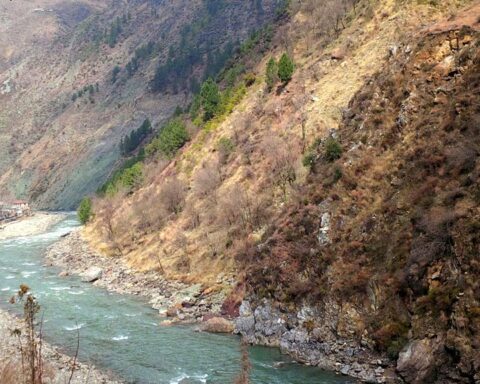MANILA, PHILIPPINES (12 April 2021) — “Sanitation continues to be a huge unmet need in Asia and the Pacific, despite the region’s progress,” said ADB Water Sector Group Chief Neeta Pokhrel. “About 1.2 billion people have no access to basic sanitation services and the region requires $53 billion per year on average up to 2030 to finance and address the water and sanitation gap.”
The opening panel of the dialogue focused on how to fix the sanitation crisis using CWIS, which ensures that investments are based on equity, safety, and sustainability, and are directed toward communities who need interventions the most. CWIS aims to galvanize action to help achieve the Sustainable Development Goals (SDGs), particularly SDG 6.2 on sanitation for all by 2030.
The coronavirus disease (COVID-19) pandemic has underscored the critical role of water, sanitation, and hygiene (WASH) as a first line of defense to prevent transmission of the virus, especially among the vulnerable.
“Sanitation services for the poor and those living in informal settlements are often badly built and managed, or there may be no access to sanitation infrastructure at all,” said ADB Water Supply and Sanitation Specialist Christian Walder. “Implementing CWIS means shifting from the conventional centralized sanitation infrastructure concept to a service-oriented approach, considering the entire sanitation service chain that is suited for local conditions, especially in urban and informal areas, and which benefits everyone.”
The Online ADB Sanitation Dialogue 2021 comprises six webinars and six workshops spread over two weeks until 22 April. The event is a platform for sanitation practitioners, government agencies and decision-makers, and development partners to discuss the strategies that will lead to systemic change on sanitation.
Major partners, such as the Bill & Melinda Gates Foundation and the Urban Climate Change Resilience Trust Fund, as well as related organizations, private sector, and civil society are participating. The Gates Foundation finances the Sanitation Financing Partnership Trust Fund under the ADB-administered Water Financing Partnership Facility, which has been supporting the adoption of CWIS in ADB operations.
ADB annual sanitation investments have risen steadily from $218 million in 2011 to $717 million in 2020, amounting to a total of $4.9 billion for 2011–2020, or 21% of ADB’s water portfolio for the period.






